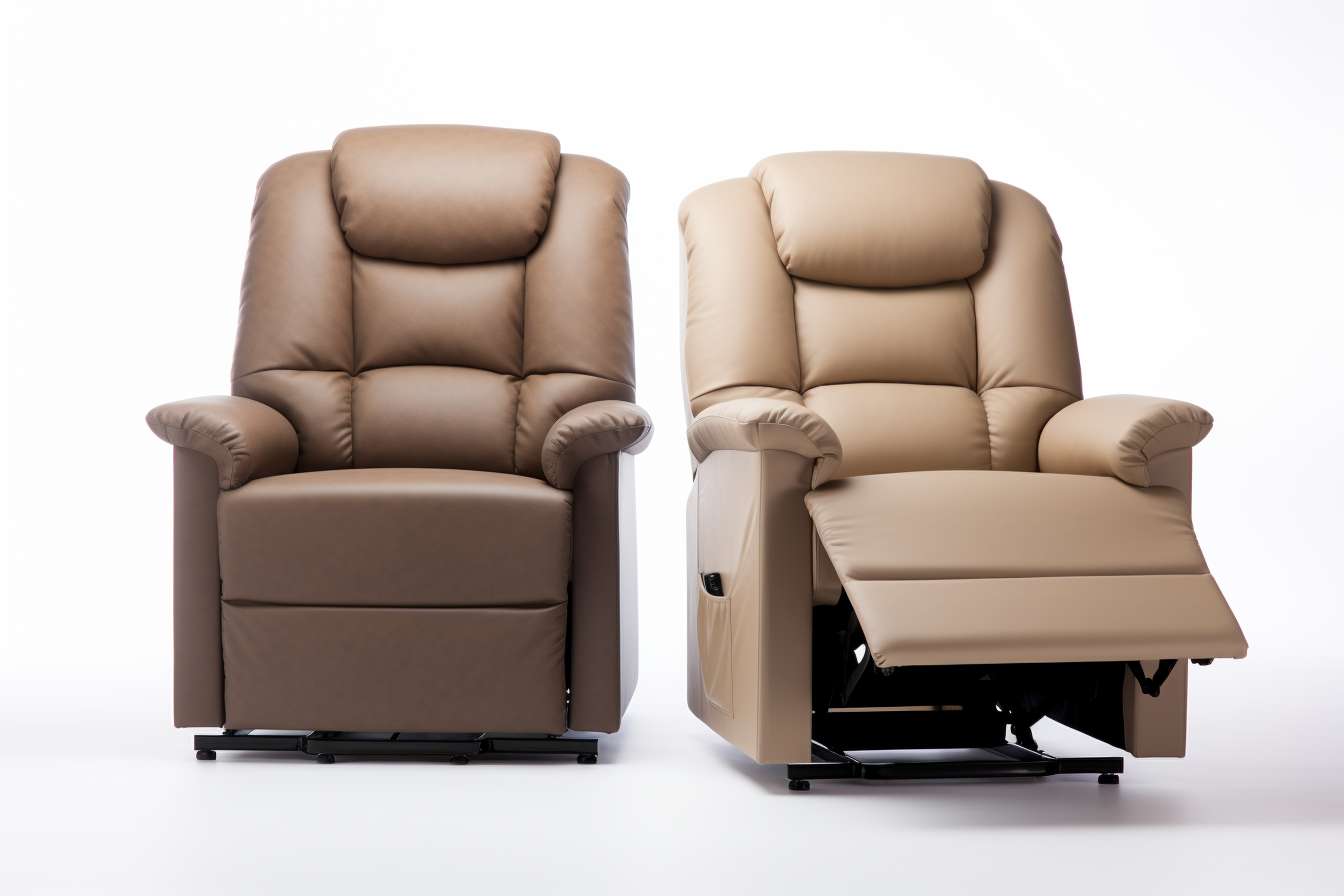Understanding Recliner Chairs: Comfort, Functionality, and Accessibility
Recliner chairs offer more than just a place to sit—they provide customized comfort, support, and independence for people of all ages. From traditional manual recliners to advanced rise and recline models that assist with standing and sitting, these versatile pieces of furniture combine ergonomic design with practical functionality to enhance quality of life and home comfort.

Recliner chairs have evolved from simple lounging furniture to sophisticated pieces that combine comfort, support, and accessibility features. Whether you’re looking for everyday relaxation or need specialized support due to mobility challenges, modern recliners offer solutions that blend seamlessly with home décor while providing practical benefits. This article explores the various types of recliner chairs available, with special focus on riser recliner options that have become increasingly popular among seniors and those with mobility needs.
What Are Riser Recliner Chairs and How Do They Work?
Riser recliner chairs are specialized seating solutions that combine the comfort of traditional recliners with motorized mechanisms that help users stand up and sit down safely. Unlike standard recliners that only tilt backward, these chairs feature dual motors that control both the backrest and the seat independently. When activated, the chair gently tilts forward and upward, effectively lifting the user to a near-standing position, significantly reducing the effort needed to stand.
The technology behind riser recliners involves powerful yet quiet motors connected to a simple hand controller. Users can adjust their position with precision, finding the exact angle that provides optimal comfort. Most models offer multiple positions, including reading, TV watching, napping, and the rise function. The mechanisms are designed to move smoothly, preventing jarring movements that could cause discomfort or pain.
Key Benefits of Recliner Chairs for Everyday Use
Recliner chairs offer numerous advantages beyond simple comfort. From a health perspective, they provide proper lumbar support, helping to alleviate back pain and promote better posture when properly adjusted. The ability to elevate legs can improve circulation and reduce swelling, which is particularly beneficial for those with certain medical conditions or who stand for extended periods.
Modern recliners also contribute to better sleep quality when used for napping or relaxation. By allowing the body to rest in a semi-reclined position, they can reduce pressure on the spine and help those with acid reflux or breathing difficulties find more comfortable sleep positions. Additionally, the customizable positions mean users can find ideal angles for various activities, from reading to watching television, reducing strain on the neck and eyes.
For households with multiple users, many recliners now come with memory settings that can store preferred positions for different people, making them versatile pieces of furniture that serve the whole family’s comfort needs.
How Riser Recliner Chairs Benefit Seniors
For seniors, riser recliner chairs represent more than comfort—they’re tools for maintaining independence and safety. As mobility decreases with age, the simple act of standing up from a seated position can become challenging and even dangerous. Riser recliners eliminate this risk by gently elevating users to a near-standing position, reducing strain on joints and muscles while preventing potential falls.
Beyond the standing assistance, these chairs offer customizable support for aging bodies. Seniors often experience increased joint pain, circulation issues, and back problems—all of which can be alleviated with the proper positioning a quality recliner provides. The ability to adjust positions throughout the day helps manage pain and discomfort without medication.
Many seniors also report psychological benefits from using riser recliner chairs. The increased independence and reduced reliance on caregivers for basic movements contributes to greater confidence and improved mental well-being. Being able to sit and stand independently allows older adults to maintain dignity and control over their daily activities, which is crucial for quality of life as they age.
Features to Consider When Choosing a Recliner Chair
When selecting a recliner chair, several key features deserve careful consideration. First, the size and fit of the chair should match the user’s body dimensions—a chair that’s too large or small can cause discomfort and negate the health benefits. Most manufacturers offer various sizes, and some provide custom fitting services to ensure optimal comfort.
The upholstery material affects both comfort and maintenance. Leather offers durability and easy cleaning but may feel cold initially and can be more expensive. Fabric options provide warmth and come in more designs but might require more frequent cleaning. For those with incontinence concerns, waterproof or water-resistant coverings are available.
The control mechanism is another crucial consideration. While manual recliners use levers or body weight to adjust positions, electric models feature remote controls with varying degrees of complexity. For users with dexterity issues or cognitive impairments, simplified controls with large buttons may be preferable. Some advanced models now offer smartphone integration or voice control options.
Additional features worth considering include built-in USB charging ports, cup holders, storage compartments, heat and massage functions, and battery backup systems that allow the chair to operate during power outages—a safety feature particularly important for those dependent on the rise function.
Understanding Recliner Chair Costs and Options
Recliner chairs vary significantly in price based on features, quality, and brand. Basic manual recliners typically start around $300-$500, while standard electric recliners range from $700-$1,500. For riser recliner chairs specifically designed for seniors or those with mobility needs, prices generally start at $800 and can exceed $3,000 for premium models with advanced features.
| Recliner Type | Average Price Range | Key Features |
|---|---|---|
| Basic Manual Recliner | $300-$700 | Manual operation, limited positions |
| Standard Electric Recliner | $700-$1,500 | Remote control, multiple positions |
| Basic Riser Recliner | $800-$1,800 | Rise function, limited positions |
| Dual Motor Riser Recliner | $1,500-$2,500 | Independent back/leg control, multiple positions |
| Premium Riser Recliner | $2,000-$3,500+ | Memory foam, massage, heat, premium upholstery |
Prices, rates, or cost estimates mentioned in this article are based on the latest available information but may change over time. Independent research is advised before making financial decisions.
Insurance coverage can significantly reduce out-of-pocket expenses for medical-grade riser recliners. Medicare Part B may cover a portion of the cost if the chair is deemed medically necessary and prescribed by a doctor. Many manufacturers also offer financing options, rental programs, or refurbished models at reduced prices.
When comparing costs, consider long-term value rather than just the initial price. Higher-quality chairs typically offer better warranties (often 3-5 years for mechanical parts), more durable construction, and longer usable lifespans, potentially providing better value despite higher upfront costs.
Maintenance and Care Tips for Recliner Chairs
Proper maintenance extends the life of recliner chairs and ensures they continue functioning safely. Regular cleaning according to the manufacturer’s instructions prevents buildup of dirt and debris that could affect the mechanism. For fabric upholstery, vacuum weekly and treat stains promptly with appropriate cleaners. Leather requires regular conditioning to prevent cracking and maintain suppleness.
The mechanical components benefit from periodic inspection and lubrication. Check for loose bolts or screws every few months, and listen for unusual noises during operation that might indicate problems. For electric recliners, ensure cords remain undamaged and connections secure. Keep the area under and around the chair clear to prevent obstructions to the mechanism.
For those with limited mobility who rely on riser recliner chairs, having a maintenance plan is essential. Consider scheduling professional servicing annually to check motors, wiring, and mechanisms. Many suppliers offer maintenance contracts that include regular inspections and priority repair service, providing peace of mind for those dependent on their chairs for daily activities.
With proper care and maintenance, quality recliner chairs can provide comfort and functionality for many years, making them worthwhile investments in home comfort and accessibility.




